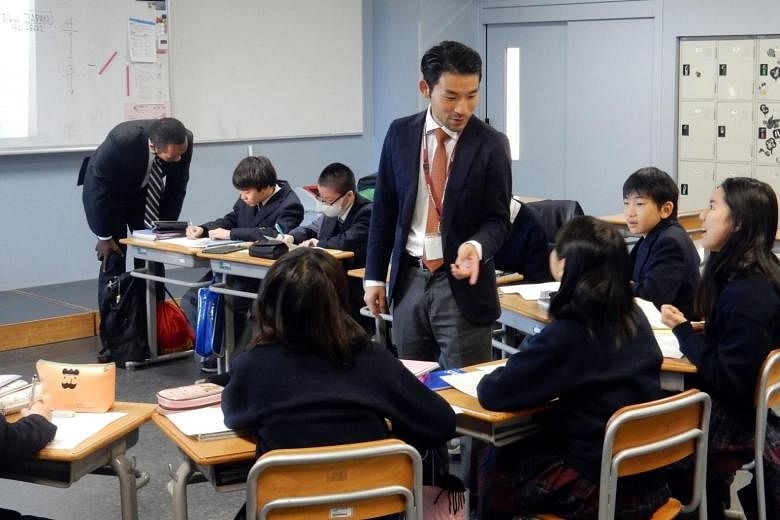TOKYO (THE YOMIURI SHIMBUN/ASIA NEWS NETWORK) - Anxiety has not ceased among would-be test-takers and other related people over privately prepared English tests to be introduced for the common university entrance examination, which will start in fiscal 2020.
It is essential for the Education, Culture, Sports, Science and Technology Ministry to sincerely accept the voices of those concerned and take countermeasures.
The English test for the new common university entrance examination system attaches importance to four skills - listening, reading, writing and speaking.
In regard to evaluating speaking abilities, it has been decided that this part of the test will be entrusted to private institutions with a proven track record.
The National Association of Upper Secondary School Principals has conveyed to the education ministry six items of concern and called for improvement measures.
A particularly problematic point is that details have not been clarified about schedules and sites for privately prepared tests. This has reportedly posed an obstacle to school guidance on entrance exams and the planning of annual school events.
Test-takers will select from among seven types of English speaking tests including the Test in Practical English Proficiency (Eiken test), to be conducted by six institutions. They will be able to take the test up to two times between next April and December.
Applications will be filed individually with any of the six institutions. But their website formats and contents are not uniform so it is hard for them to be compared.
The education ministry said it would create a website as early as this month to provide information in a unified manner. But it is being too slow.
Current second-year high school students will in November file applications for "common IDs" that are necessary for taking the common test. It is problematic that details have not been worked out yet.
Reexamine planned system
The number of test centres in regional areas are limited. Some people point out that students may have different chances to take the tests, depending on the financial condition of each household.
There are also deep-rooted worries among high schools about the impartiality and fairness of the tests. The results of the seven tests will be evaluated in six stages based on international standards.
Not a few experts criticise the evaluation system as to whether it will be possible to compare test results adequately. Concerns have been expressed about the possibility of proxy test-taking and the leaking of exam questions.
National universities and other public universities have expressed an intention to use the planned English test but some private universities remain undecided, saying they want to wait and see what other private universities do.
It is desirable that they make public their decisions as soon as possible.
University entrance exams can affect the lives of examinees. The test system should convince all of them of its fairness.
The education ministry and universities should recognise the importance of entrance exams and reexamine such things as ways of conducting exams.
One of the main objectives of entrance exam reform is to break with the situation in which too much importance is attached to paper tests, while students only have one chance to prove themselves and results are decided by increments of a single point.
The planned privately prepared English test, with its six stages of evaluation, is in line with that direction of reform.
Testing practical English abilities in university entrance exams is also aimed at changing the English education provided up to high school from a reading-centred approach to one that places importance on communication skills.
Despite that, it will become necessary some day to verify the extent to which time and effort should be spent on assessing the speaking skills of examinees, and how much burden can be placed on them.
The Yomiuri Shimbun is a member of The Straits Times media partner Asia News Network, an alliance of 24 news media organisations.

